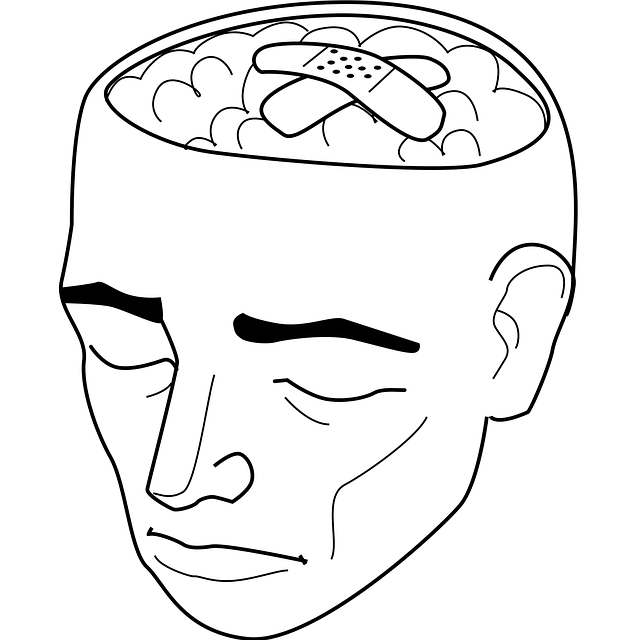Self-care is crucial for healthcare providers' well-being and patient outcomes, reducing stress and improving job satisfaction. Longmont Biofeedback Therapy offers a revolutionary approach by combining real-time physiological data with self-care practices to manage stress, anxiety, and emotional states. Incorporating daily routines like mindfulness and exercise, supported by tracking progress through journaling or mood tracking, enhances overall well-being. Public awareness campaigns and community forums further promote self-care, fostering a supportive network for improved mental wellness.
In today’s fast-paced world, self-care practices are essential for maintaining overall wellbeing. This article explores the transformative power of understanding and adopting self-care routines, with a specific focus on how Longmont Biofeedback Therapy can facilitate this process. We’ll delve into effective strategies to integrate daily self-care, provide practical tips for tracking progress, and offer insights into sustaining healthy habits over time.
- Understanding Self-Care and Its Impact on Wellbeing
- The Role of Longmont Biofeedback Therapy in Self-Care Practices
- Practical Tips for Integrating Daily Self-Care Routines
- Tracking Progress and Maintaining Long-Lasting Self-Care Habits
Understanding Self-Care and Its Impact on Wellbeing

Self-care isn’t just a luxury; it’s a vital practice essential for maintaining overall wellbeing and preventing burnout. It involves intentional actions taken to nurture one’s physical, mental, and emotional health. These practices can range from simple activities like regular exercise or mindful meditation to more specialized approaches such as Longmont Biofeedback Therapy. By incorporating self-care into daily routines, individuals can enhance their resilience, improve mood management, and reduce stress levels.
For healthcare providers, who often juggle high-pressure situations and demanding schedules, prioritizing self-care is not just beneficial but crucial. Burnout prevention strategies are essential to ensure these professionals maintain optimal performance and compassion for their patients. Incorporating self-care practices can help manage workload stress, improve job satisfaction, and ultimately lead to better patient outcomes in the long term.
The Role of Longmont Biofeedback Therapy in Self-Care Practices

Longmont Biofeedback Therapy offers a unique and effective approach to enhancing self-care practices. This innovative technique empowers individuals to take control of their mental well-being by providing real-time data on physiological responses. Through this process, one gains a deeper understanding of how stress, anxiety, or other emotional states impact their body, enabling them to make informed decisions about managing these feelings. By integrating Longmont Biofeedback Therapy into self-care routines, individuals can experience a significant confidence boosting effect, as they become more attuned to their internal signals and learn healthy coping mechanisms.
Beyond its immediate benefits, this therapy serves as an essential component in the broader context of mental health education programs design. It equips people with practical tools for navigating crises and offers valuable crisis intervention guidance. By learning to regulate their physiological responses, individuals can better manage challenging situations, thereby reducing the likelihood of escalating mental health issues. Thus, Longmont Biofeedback Therapy not only improves self-care practices but also contributes to a holistic approach to mental health promotion.
Practical Tips for Integrating Daily Self-Care Routines

Incorporating daily self-care routines is a powerful way to enhance your overall well-being, and Longmont Biofeedback Therapy offers valuable insights for achieving this balance. Start by setting aside dedicated time each day for practices that nurture your mind, body, and spirit. Simple yet effective habits such as mindful meditation, deep breathing exercises, or even a short walk in nature can significantly reduce stress levels and improve mental clarity. These practices create an opportunity for introspection and self-reflection, allowing you to better understand your emotional needs.
Consider incorporating long-term strategies like regular physical activity, adequate sleep hygiene, and a balanced diet. Public Awareness Campaigns Development focused on Mental Health Awareness play a crucial role in promoting these behaviors. By prioritizing self-care, individuals can build resilience against daily stressors, fostering improved mental health outcomes. Longmont Biofeedback Therapy recommends using tools such as journaling to track your progress and identify areas where you may need additional support, ensuring a holistic approach to self-care integration.
Tracking Progress and Maintaining Long-Lasting Self-Care Habits

Tracking your progress is a vital component of cultivating lasting self-care habits. Longmont Biofeedback Therapy encourages individuals to monitor their well-being regularly, taking note of improvements or areas that still require attention. This could involve journaling daily experiences, tracking mood swings, or measuring physical symptoms associated with stress and anxiety. By consistently assessing your mental wellness, you gain valuable insights into what self-care practices are most effective for you. This personalized approach ensures that your routine remains tailored to your unique needs, fostering a deeper sense of balance and calm.
Public awareness campaigns can further reinforce the importance of self-care and provide additional tools to aid in this journey. Educating oneself about various techniques, such as mindfulness exercises or stress management strategies, empowers individuals to take charge of their mental health. As you progress, consider sharing your experiences through community forums or supporting others who are also prioritizing their well-being—a supportive network can significantly contribute to sustained anxiety relief and overall mental wellness.
Self-care is not a luxury, but a necessity for overall wellbeing. By understanding its impact and incorporating practices like Longmont Biofeedback Therapy into daily routines, individuals can achieve a healthier balance. Practical tips and consistent tracking of progress are key to maintaining long-lasting self-care habits. Embrace these strategies to nurture your mind, body, and soul effectively.











